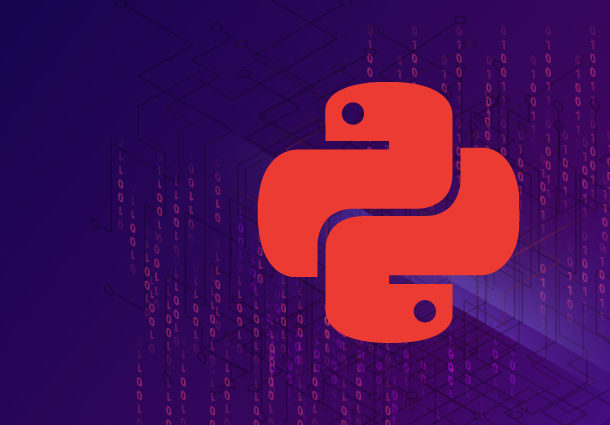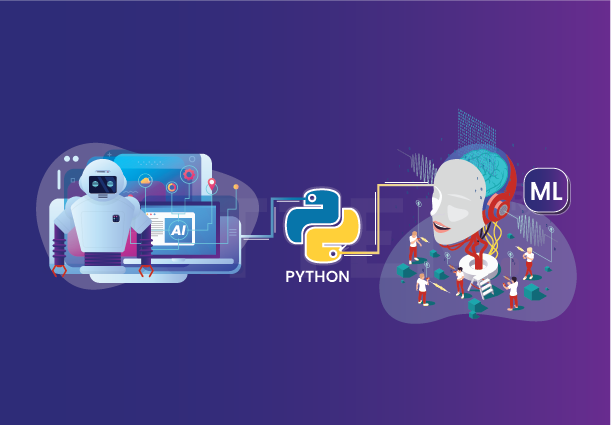Exploring the Exquisite Realm: Python’s Emergence as a Mobile App Innovator
The programming language Python is a game-changer in the mobile app development space because of its inventiveness and adaptability. Because of its readability and simplicity, Python mobile app has become a popular choice for mobile applications, enabling developers to create experiences that are truly cutting-edge. It’s important to comprehend Python’s underlying ideas and the significant implications it has for the future of app development as we set out to explore its possibilities in mobile development.
With its paradigm-shifting introduction into the mobile app space, Python provides developers with an extensive toolkit to create intricate and dynamic applications. 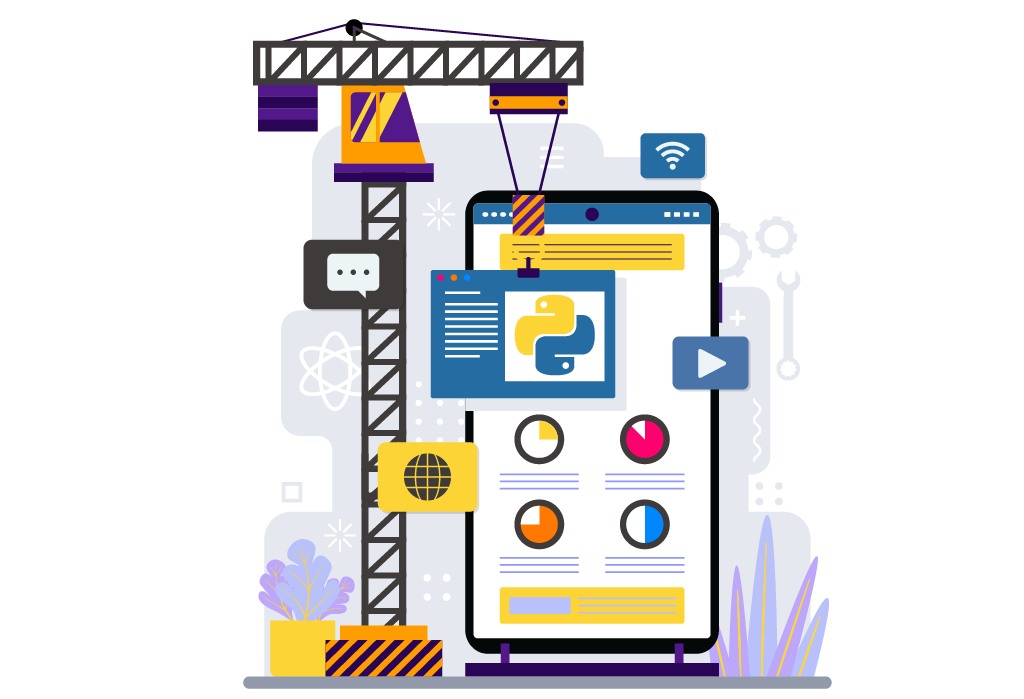 Rapid prototype and implementation of mobile applications are made possible by its large libraries and intuitive syntax, which accelerate development cycles. Additionally, developers may target many platforms with a single codebase thanks to Python’s cross-platform compatibility, which streamlines development efforts and shortens time-to-market.
Rapid prototype and implementation of mobile applications are made possible by its large libraries and intuitive syntax, which accelerate development cycles. Additionally, developers may target many platforms with a single codebase thanks to Python’s cross-platform compatibility, which streamlines development efforts and shortens time-to-market.
Given the status of the internet today, the importance of next-generation mobile apps cannot be emphasized. Developers look for solutions that can adapt to these changing needs as users want more seamless features and richer experiences. Python is a capable programming language that offers a strong foundation for creating feature-rich apps that satisfy a wide range of customer needs and preferences. Python offers developers the tools they need to push the limits of mobile innovation, from AI-powered assistants to fully immersive augmented reality experiences.
We’ll go deeper into mobile app development by using Python in the voyage ahead, looking at its advantages, features, and practical uses. Together, we’ll discover all of the potential that Python offers, ushering in a new era of excellence and creativity in mobile programming.
Python’s Expertise in Mobile App Development; Untapping the Potential
When it comes to developing mobile apps, Python—the pinnacle of coding elegance—breaks all conventional rules. Because of its versatility, which enables a wide range of capabilities, it is the ideal option for contemporary app development projects.
Python for mobile application is really about being simple and flexible. Its dynamic type and simple syntax allow for quick development cycles, freeing developers to concentrate on innovative ideas rather than complex details. Furthermore, a robust toolkit for creating a variety of mobile applications catered to particular requirements is provided by Python’s enormous ecosystem of third-party packages and extensive standard library.
Python’s readability and maintainability are two of its core advantages. Python code is easily readable due to its emphasis on simplicity and clarity, which promotes collaboration and increases productivity within development teams.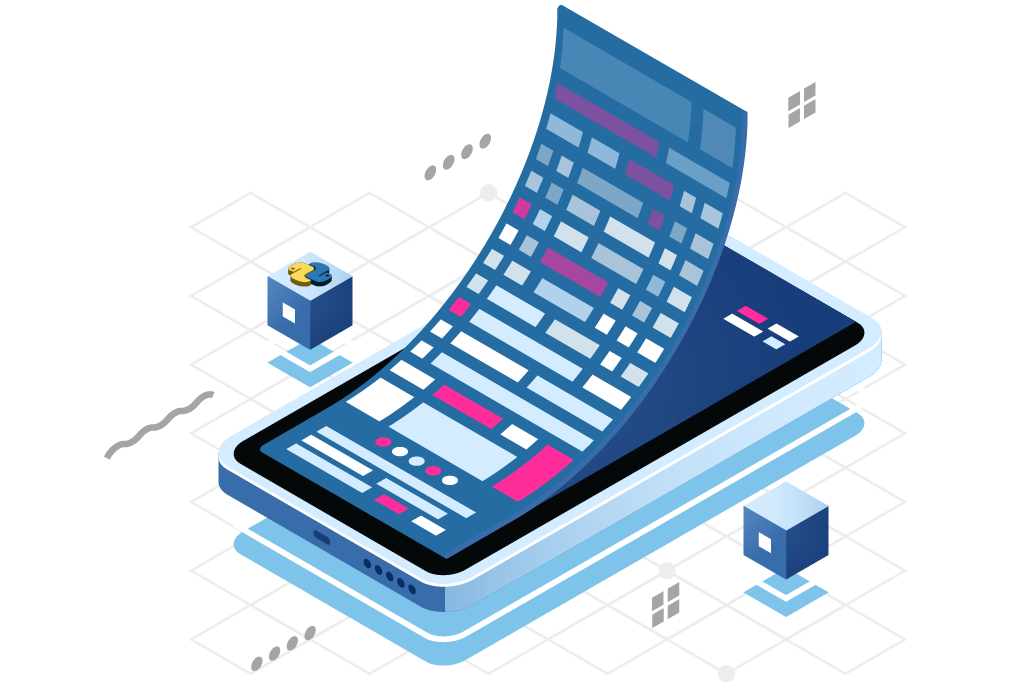 Furthermore, Python’s extensive documentation and robust community support enable developers to overcome obstacles with ease and advance their knowledge constantly.
Furthermore, Python’s extensive documentation and robust community support enable developers to overcome obstacles with ease and advance their knowledge constantly.
There are many benefits to using Python when developing mobile apps. Because of its cross-platform compatibility, developers may easily target several operating systems, which cuts down on development costs and time-to-market. Moreover, Python’s strong integration features make it easy to integrate modern technologies like data analytics, machine learning, and artificial intelligence into mobile applications, opening up previously unheard-of possibilities for uniqueness and creativity.
Python, with its ideal blend of simplicity, scalability, and sophistication, is essentially a paradigm change in mobile app development. Through the use of Python’s built-in capabilities and its thriving community, developers can create mobile experiences that are truly remarkable and appeal to a global user base.
Sculpting Mobile Marvels with Revolutionary Python’s Frameworks
The rise of Python in mobile programming is evidence of creativity, not just a fad. Exploring Python frameworks for mobile programming opens up a world of possibilities where elegance and efficiency coexist. It’s never been more exciting to get from concept to app store with so many innovative frameworks at your disposal, all designed to boost efficiency and enhance creativity.
The foundation of Python’s mobile power is its collection of frameworks, each of which is made to meet a variety of requirements and improve standards for development. A standout example of inventiveness among them is Kivy, which provides an adaptable toolkit that makes creating cross-platform mobile applications incredibly simple. Developers may use Kivy’s straightforward features to create boundary-pushing immersive user experiences, allowing them to convert concepts into reality with ease.
The consequences of Python mobile app frameworks, however, go far beyond the world of coding and into the very fabric of corporate strategy. 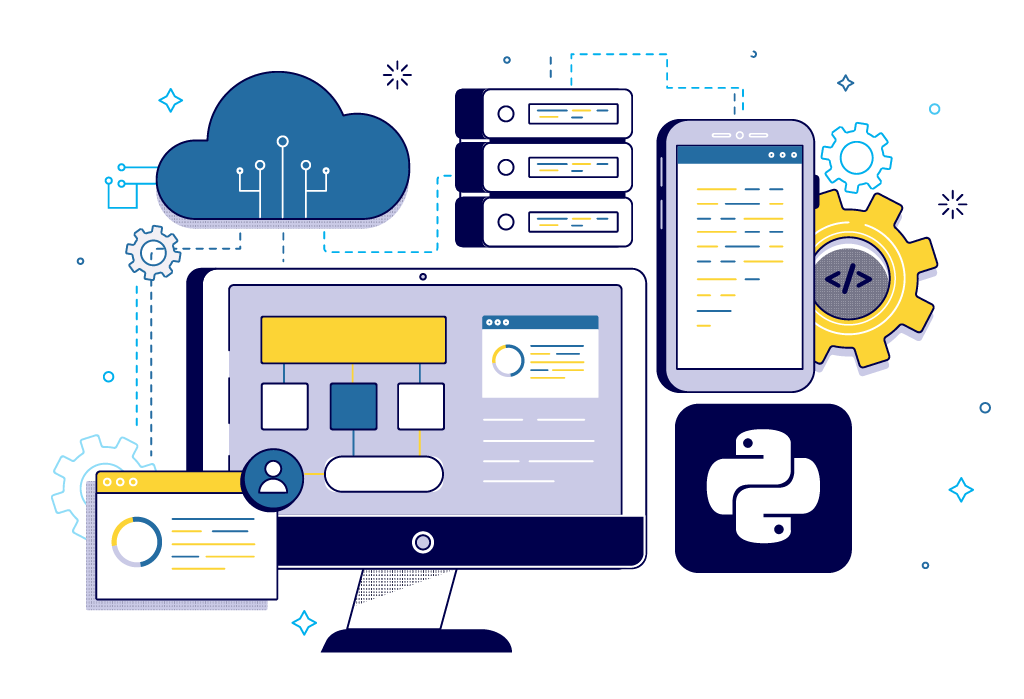 Enterprises can attain a competitive advantage and explore novel approaches for innovation and market uniqueness by adopting Python frameworks. Using Python frameworks to construct mobile apps signals a paradigm change in which agility and adaptability are paramount, from optimizing scalability to simplifying development processes.
Enterprises can attain a competitive advantage and explore novel approaches for innovation and market uniqueness by adopting Python frameworks. Using Python frameworks to construct mobile apps signals a paradigm change in which agility and adaptability are paramount, from optimizing scalability to simplifying development processes.
Numerous real-world examples demonstrate how Python frameworks can significantly impact business success. Whether it’s optimizing backend operations for maximum efficiency or reinventing client engagement with interactive interfaces, Python frameworks enable organizations to break new ground and set industry standards.
Python’s Cross-Platform Prowess: Redefining Mobile Development Horizons
With Python’s powerful skills in cross-platform mobile development, set out on a trip into the intersection of efficiency and innovation. There is an increasing need for adaptable solutions that work across platform boundaries as technology advances. A language that is well-known for its flexibility and agility and has the potential to completely transform the mobile market.
Python is a bright spot for creativity in the field of cross-platform mobile development since it gives programmers a powerful toolkit to help them deal with the challenges of creating contemporary applications. Python’s adaptable frameworks and libraries enable programmers to create programs that function flawlessly on a variety of platforms, including iOS and Android.
A notable example of Python’s cross-platform capabilities is the innovative framework BeeWare, which represents the union of creativity and usefulness. With the help of BeeWare, Python programmers can create native-quality mobile applications without the need for separate codebases, streamlining the development process. With BeeWare, developers can unleash their creativity without being constrained by platform fragmentation, thanks to its rapid prototyping and seamless deployment capabilities.
Beyond its technical prowess, Python is very appealing for cross-platform development. Python, which democratizes app development and promotes cooperation between varied teams, is fundamentally based on an inclusive and accessible mindset. Businesses may simplify processes, shorten time-to-market, and expand their reach with less overhead by utilizing Python for cross-platform programming.
Pioneering the Next Frontier and Future Trajectories in Python Mobile Development
The field of technology is changing at a very rapid pace, and Python mobile programming has a bright future ahead of it with lots of new and exciting possibilities. Modern technology and developing trends are changing how we design, develop, and implement mobile applications in this fast-paced world of technological progress. With its agility and versatility, Python is positioned to lead this revolutionary journey and redefine the limits of mobile programming.
Future developments in mobile programming will mostly focus on integrating cutting-edge technology, which has the potential to completely transform mobile apps that are made with python. Python is a versatile platform that allows developers to unleash their creativity and explore a wide range of possibilities, from blockchain and augmented reality to artificial intelligence and machine learning. Through the utilization of these cutting-edge technologies, mobile apps written in Python may provide users with new levels of engagement through expanded features, intelligent capabilities, and immersive experiences.
The smooth incorporation of artificial intelligence (AI) into mobile applications is a striking illustration of upcoming developments in Python mobile programming. By combining Python’s powerful AI libraries and frameworks, developers can provide mobile apps with artificial intelligence (AI) capabilities that allow them to comprehend, adjust, and anticipate user behavior with previously unheard-of precision. AI-powered Python mobile apps have the potential to transform user experience and spur innovation across a wide range of sectors, from computer vision and natural language processing to personalized recommendations and predictive analytics.
Future developments in Python powered mobile solutions, however, will have an impact on company mobility and digital transformation that goes well beyond technological advancement. Organizations that use Python for mobile development have access to a wealth of resources, tools, and knowledge that help them build strategies faster, innovate more quickly, and improve workflows. Python’s adaptability and scalability give enterprises, ranging from start-ups to multinational conglomerates, a strategic edge by enabling them to remain flexible, competitive, and responsive to changing market conditions.
Python’s Path in Shaping Next-Gen Mobile Solutions with Pattem
In terms of summation, Python is a leader in the field of next-generation mobile development because it provides a powerful blend of adaptability, nimbleness, and creativity. When we consider how crucial Python has been to the development of mobile apps, it becomes clear that its impact goes far beyond its technical aptitude. Businesses may explore new avenues for growth, innovation, and market distinction because of Python’s strong ecosystem and innate adaptability.
Businesses may utilize the full range of Python’s capabilities to produce innovative solutions that attract audiences, promote engagement, and propel business success by embracing Python for mobile app development services. Python is a reliable partner that leads us to a future of creativity, adaptability, and boundless opportunities as we traverse the ever-changing terrain of mobile development. Together, let’s set out on this adventure to explore the always-changing landscape of mobile innovation and mold the direction of digital experiences by utilizing Python’s capabilities.




